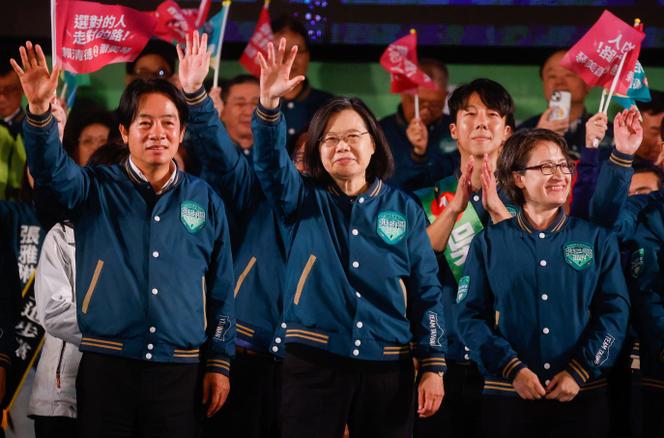


Late afternoon on Saturday, January 13, Ou Ouling and her husband paid another visit to the polling station on Linsen Street in central Taipei. They had already voted at 11 am but wanted to take a look at the count. "This is our system, everyone can come in, it's open, it's transparent," explained Ou, wearing flip-flops, black jeans and a red hoodie.
After the polling station closed at 4 pm, the citizen assessors emptied the ballot boxes. Anyone could enter the room and attend the vote count. One of the assessors loudly and clearly called out the name on each ballot paper – pink for the presidential elections, yellow for the legislative ballots – before then showing it to the assembled audience.
As soon as the results were confirmed in the early evening, the two opponents of the winner, former vice-president Lai Ching-te (also known by his English name William Lai), conceded defeat without contest and congratulated the newly elected president – a sign of a mature democracy, where almost 72% of citizens over the age of 20 voted. This democratic electoral process is a headache for mainland China, which has promised to bring the island back into the fold on its own terms. "We are very proud of this. Even if the candidates are disappointed with the result, they accept the people's choice," said Chen Yijing, a 36-year-old woman, who had come to take part in the rally organized in the center of the capital to celebrate Lai's victory.
Faced with Taiwanese voters' choice, Beijing appears to be without a solution. On Saturday evening, Chen Binhua, spokesman for China's Taiwan Affairs Office, declared that this vote "will not hinder the inevitable trend of reunification with China." Yet the fact remains that Beijing's repeated threats – made since President Tsai Ing-wen came to power in 2016 – have not persuaded the Taiwanese people to choose the path of rapprochement. In recent years, Chinese flyovers near the island of Taiwan have become an almost daily occurrence, and Beijing has stepped up its large-scale military exercises.
With just over 40% of the vote – compared to the score of 57% recorded by Tsai four years earlier – the vote for the presidential Democratic Progressive Party (DPP) has fallen sharply. This is, however, the first time since the island's democratization in the mid-1990s that a political group has won three successive presidential elections. A grim scenario for Beijing. While the DPP's leaders have repeated that they will maintain the status quo – without a formal declaration of independence, as Taiwan already exercises de facto sovereignty – the DPP's charter retains the pursuit of independence, which constitutes a casus bello for China. Lai has notably pledged to further integrate Taiwan – already the undisputed leader in semiconductors – into trade with open economies and democratic countries, to reduce his country's dependence on China.
You have 55% of this article left to read. The rest is for subscribers only.
